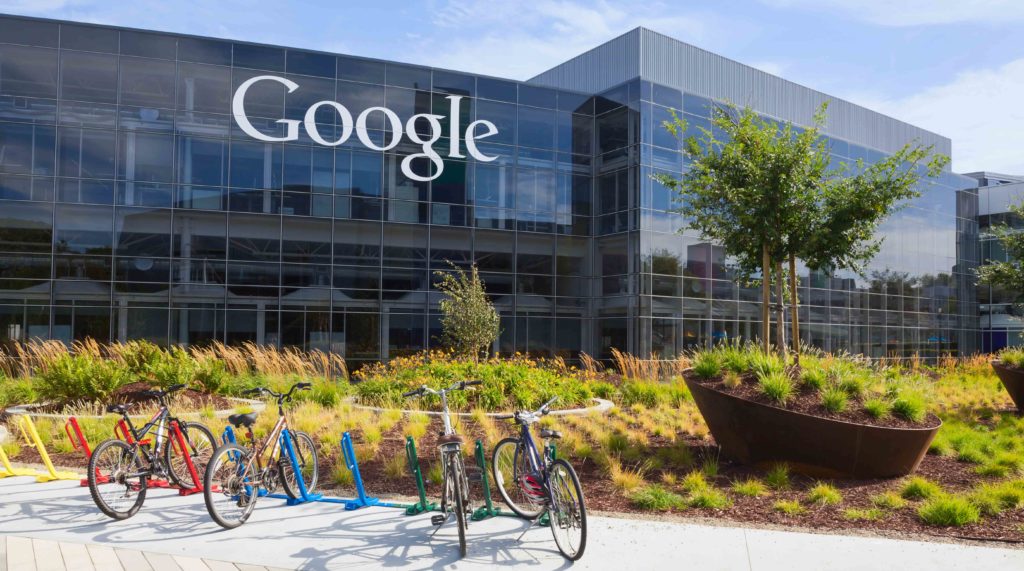Cars, candy, clothes, cosmetics, cleaning products. They’re the everyday items of a modern society that most of us can’t help but use, even though we might have serious concerns about their impact on the environment. The question is when it comes to all the waste that is generated when producing and consuming these products, can it ever really be done sustainably?
Over the past decade, many major companies and brands have made huge strides toward sustainability by joining the zero waste movement. Sending zero manufacturing waste to landfill, particularly where more than 90% of waste is diverted from both landfills and incinerators, has been a major success at corporations that produce many household names. On top of that, there are also companies out there going the extra mile to ensure consumers and smaller businesses don’t end up shouldering the burden of all that trash when it leaves their facilities.
If you don’t already know these companies, their zero-waste products and services, or their initiatives to reduce the amount of waste we all produce on a daily basis, here we look at some of the top zero waste companies aiming to produce less waste. Whether that’s tackling the enormous task of diverting manufacturing waste from landfill or by giving consumers the tools and opportunities to eliminate waste at home, both small businesses and giant corporations are beginning to make the change and work towards a zero-waste future.
Companies leading the way in zero waste to landfill
Subaru
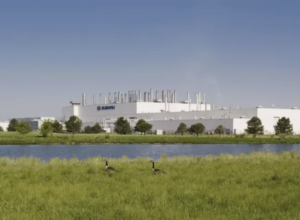
Source: treehugger.com
For the past 15 years, nothing has gone to waste at Subaru. Their manufacturing facility in Lafayette, Indiana, and four plants in Japan, have been zero waste to landfill since 2005—no small feat for a company that produces nearly 1 million vehicles per year across its supply chain.
The company tracks its waste production using barcodes and sends the materials to other departments or plants where they can be recycled or repurposed. They recycle everything from waste oil to paint sludge and reuse packaging wherever possible. Waste that is too difficult to reuse or recycle is incinerated for energy, but this totals less than 5% of their overall waste.
Beyond just eliminating manufacturing waste on their side, the company has also ensured that 96% of the components in a Subaru vehicle are reusable or recyclable. They have also partnered with the National Parks Conservation Association to help bring their zero-waste strategies to America’s national parks and extend their waste reduction philosophy to an even greater challenge.
Unilever
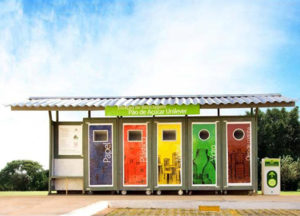
Source: unilever.com
There’s a good reason why Unilever often tops the list of best zero waste companies. The company achieved its Zero-Waste-to-Landfill goal in 2016, six years ahead of schedule, and has maintained it ever since. Doing this at a company with 242 factories in 67 countries that produce an extensive variety of products required a lot of innovation. Some of their unique efforts include transforming tea waste into textile dyes and reusing sludge to feed earthworms.
According to Unilever, going zero waste and implementing eco-friendly initiatives has created numerous jobs and helped save the company over $225 million. They don’t plan to stop there, however, and have pledged to use only 100% recyclable, reusable, or compostable packaging by 2025.
Procter & Gamble
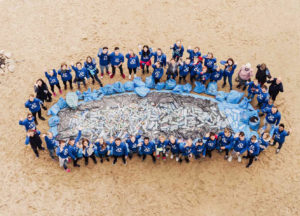
Source: us.pg.com
This company launched its Zero Manufacturing Waste to Landfill program in 2008 and has made steady progress since then. By 2013, 45 of their manufacturing facilities around the world had gone zero waste, and by 2018 they had successfully diverted 80% of operational waste from landfill, with the ultimate goal of achieving 100% by the end of this year.
A large part of P&G’s success can be attributed to its Global Asset Recovery Purchases (GARP) team, which is in charge of strategies to divert waste. Some of these incredible innovations include converting plastic waste from diaper production into pellets to make brooms and buckets, and transforming scraps from toilet paper and wipes into material for low-cost roofing tiles.
In the long term, P&G is also committed to tackling consumer waste by striving towards offering 100% recyclable or reusable packaging by 2030.
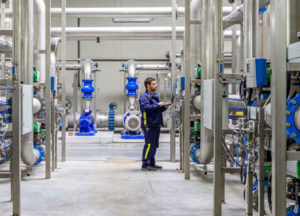
Source: sustainability.google
You wouldn’t expect this tech behemoth to be one of the major zero-waste companies in North America, but Google is well on its way. As of 2016, six of the company’s data centers had achieved 100% zero waste, and as of 2017, a total of 91% of waste from global data centers was being successfully diverted from landfill.
To do this, the company switched its hardware upgrade strategy to focus on repairing and reusing equipment whenever possible. Equipment that can’t be reused is resold and given a second life, and anything that cannot be reused or resold is instead recycled. Efforts to reduce food and other types of waste have also resulted in an 86% landfill diversion rate at Google’s Bay Area offices.
Looking toward the future, the company is committed to achieving UL 2799 Zero Waste to Landfill certification at all of its final assembly manufacturing sites by 2022.
Mars, Inc.

Source: wemeanbusinesscoalition.org
Committed to the zero waste cause since 2007, in 2016 this food product maker succeeded in achieving zero manufacturing waste to landfill at all 126 of its factories worldwide. To achieve this goal Mars focused on reducing waste by streamlining operations, introducing recycling schemes, and, of course, devising innovative uses for recovered waste products. Some of these include using leftover sweeteners as an energy source for manufacturing and capturing methane from disposable solid waste to generate alternative energy and minimize greenhouse gas emissions.
Among other sustainability goals, Mars is currently striving to make 100% of its plastic packaging reusable, recyclable, or compostable by 2025.
Sierra Nevada
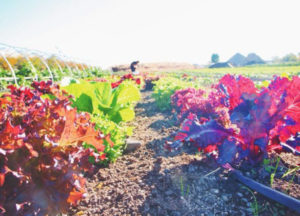
Source: sierranevada.com
Since 2013, Sierra Nevada has been diverting 99.8% of its solid waste from landfill. As a beer manufacturer, the majority of its production waste is brewing byproducts like barley and hops, which is diverted from landfill and supplied to livestock farms for use as feed. The company is also big on composting, using the HotRot composting system in its fields, breweries, and restaurants.
Sierra Nevada’s efforts go beyond simply eliminating manufacturing waste, however. Zero waste has been incorporated into the company culture, and from day one employees are gifted reusable bags, water bottles, and containers, and encouraged to eliminate the waste normally generated throughout their working day. All their hard work has paid off, as the US Zero Waste Council certified Sierra Nevada’s Chico, CA brewery as a platinum-level zero waste company—the highest possible certification level.
Companies helping businesses and consumers achieve their zero waste goals
RTS

Source: rts.com
No matter whether a company is a major multinational or a startup, achieving zero waste can be a complicated feat full of challenges. RTS is a waste management service that champions zero waste and assists businesses striving towards that goal by providing comprehensive waste consulting and management. Rather than just remove and recycle waste themselves, the company focuses on providing tools and training for companies to help them meet their sustainability goals in the long run, and their consulting branch consists of a team of TRUE Advisors.
Since being founded in 2015, RTS has helped clients like Whole Foods and Barclays make major gains on diverting waste from landfill and work towards low-impact operations. The company has also been named a B Corporation Best For the World Environment Honoree in recognition of the large positive impact they have on striving towards sustainability.
TerraCycle
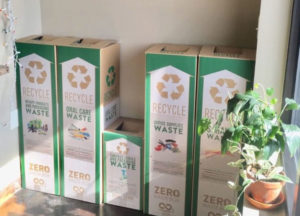
Source: pinterest.com
TerraCycle is known for its Zero Waste Box and other solutions that help businesses and consumers divert typically difficult-to-recycle materials from landfill. But over the past few years they’ve also worked with major brands like Unilever and P&G to create Loop, a zero-waste platform that allows brands to offer their products to consumers in reusable containers.
Customers pay a small deposit on each container, and products arrive in a reusable tote bag or bin. When the containers are empty, they can be placed back in the bag or bin, which is then picked up by Loop for reuse, and the deposit returned. The system has been shown to have a lower carbon footprint than single-use packaging or conventional plastic bag refuse collection and helps both consumers and companies work towards achieving zero waste.
Patagonia
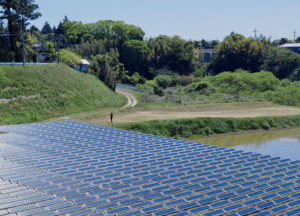
Source: patagonia.com
This renowned outdoor wear manufacturer has been committed to sustainability for a number of years. Patagonia is one of a dwindling number of companies that still offers a lifetime guarantee, and they pledge to repair items upon request regardless if the damage is due to improper manufacturing or normal wear and tear—a true example of high-quality customer service!
In 2011 Patagonia launched its Common Threads Initiative, which gives consumers additional options other than throwing unwanted gear away by encouraging them to donate or sell the item on the company’s dedicated online marketplace. For items that are ready to be retired, consumers can send them back to the company, where they will be recycled into the materials that make up 70% of new Patagonia products.
Lush
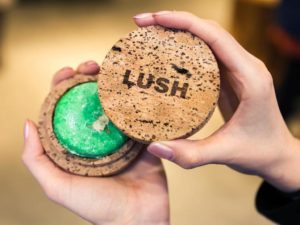
Source: greenqueen.com
Famous for its ethical body care and beauty products, Lush has always offered a number of items that can be purchased plastic and package-free. In recent years the company has gone the extra mile in helping consumers work towards a zero-waste lifestyle by expanding its “Naked” line of care products, with package-free wellness-promoting goods now forming 35% of the product lineup in online shops and stores in the US.
In several countries, including the UK, Italy, and Hong Kong, the company has also opened special Lush Naked shops, where 100% of products are sold without packaging. Customers are encouraged to bring their own bags and containers to take their purchases home, or they can purchase one of Lush’s specialized containers made of stainless steel and sustainable cork.
No matter how large or small your business or family is, zero waste is not an impossible goal. For more ideas on what you can do to further your own journey, check out our guide on zero waste at home, visit our zero waste store, or kickstart your journey with one of our zero waste kits. Additionally, if your business is looking to go zero waste, contact one of our TRUE Advisors today to discuss your current waste management systems and what we can do to help!

